Category: News & Events
-
CBI alumnus Yadilette Rivera-Colon wins award!
We are proud to announce that Yadilette Rivera-Colon is one of nine winners of the Women of Color STEM Achievement Awards foe 2021. See the full announcement here. Yadilette completed her PhD in the Garman Lab in 2013, and is now an Assistant Professor of Biology at Bay Path University. Read more
-
CBI Students’ Publication: Ben Adams, Nathan Canniff and Kevin Guay reveal the specificity of key protein quality control sensors
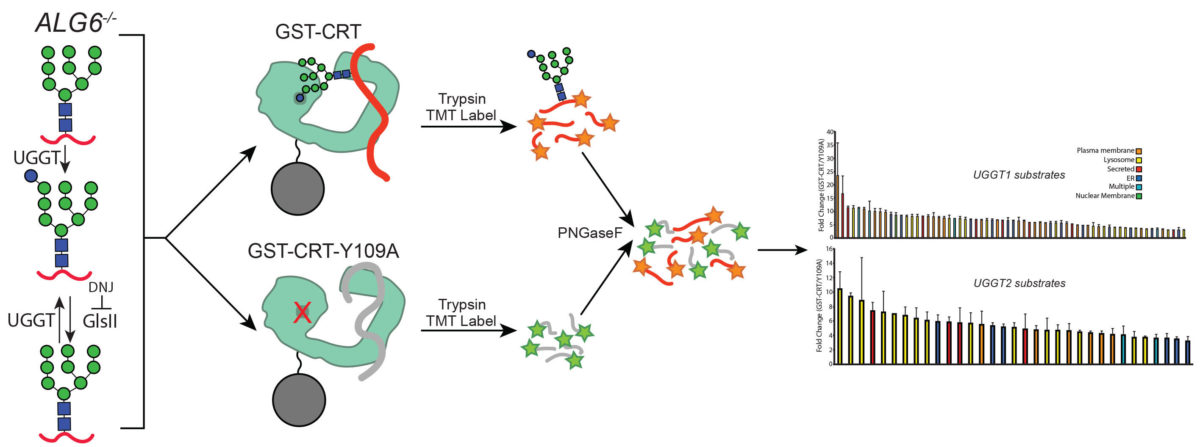
UGGT1 and UGGT2 are key quality control factors that determine the fate of glycoproteins in the early mammalian secretory pathway. These two paralogues direct persistent molecular chaperone binding in the endoplasmic reticulum that helps with protein maturation and sorting. Persistent chaperone binding of terminally misfolded clients can target proteins for degradation by the proteasome, as… Read more
-
Student Publication: Carey Dougan, “Cavitation in Soft Matter” 2020
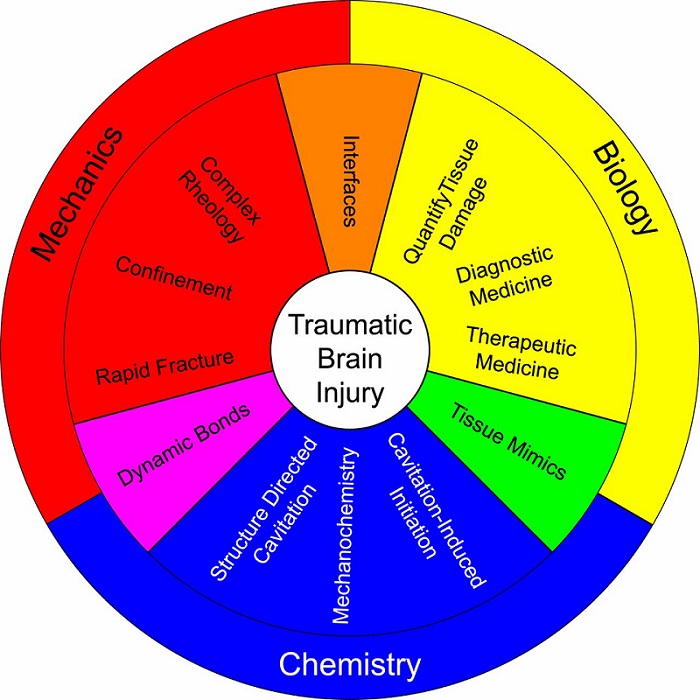
Co-first author Dougan adds, “While cavitation is often thought of as something to be avoided, we aim to use it to benefit medicine and the development of new treatments.” For example, cavitation rheology can be used to measure the strength of interfaces within the brain, which is difficult to achieve with any other method, she… Read more
-
Weiyue Xin – Graduate Research Student Seminar (GRASS) 3rd Place
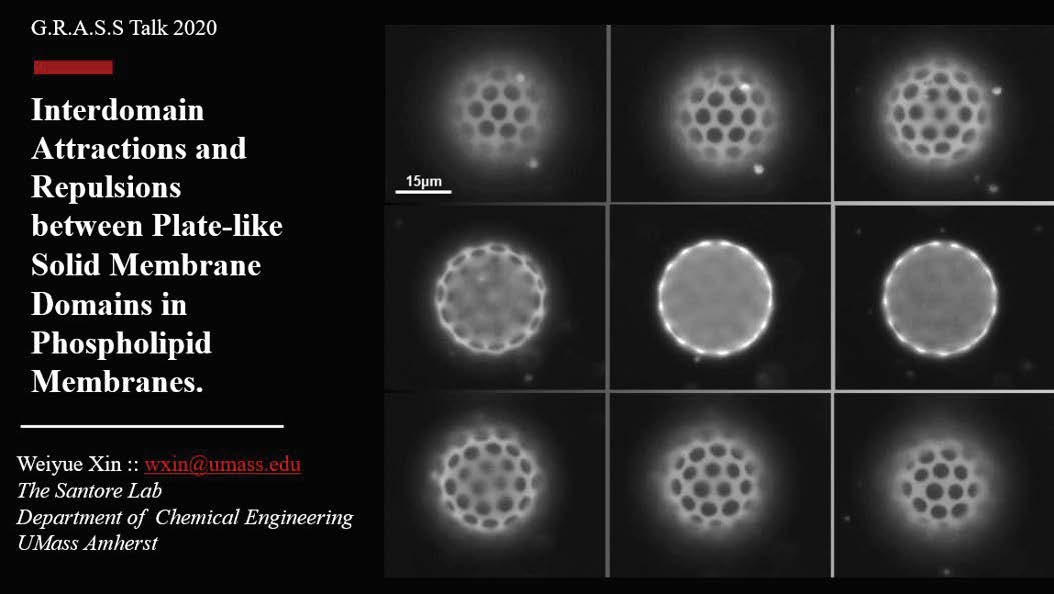
CBI Trainee Weiyue Xin (Santore Lab) took third place in the Annual G.R.A.S.S. (Graduate Research Student Symposium) for her seminar on the interactions between solid domains in biomimetic membranes. Weiyue’s work is part of a larger DOE-sponsored collaboration between the Santore and Grason groups, aiming to understand new mechanisms occurring in membranes made from biomolecules,… Read more
-
CBI celebrates 2020 Chemistry Nobel prize
What a happy coincidence that on the day of the announcement that Jennifer Doudna and Emmanuelle Charpentier were awarded the Nobel Prize in Chemistry for basic science at the interface of Chemistry and Biology, CBI’s monthly Chalk Talk featured the labs of two women, Amanda Woerman and Jeanne Hardy. Jeanne took a moment to mark… Read more
-
Adrian Lorenzana wins NOBCChE First Prize Poster Award!

CBI Trainee Adrian Lorenzana won first prize in the Materials Science and Engineering category in the NOBCChE ConneXions Poster Competition 2020 for his poster presentation “Force-responsive Materials Utilizing Cryptic Crosslinking Sites.” Congratulations Adrian! Read more
-
Oct 23: CBI Alumni Networking Event
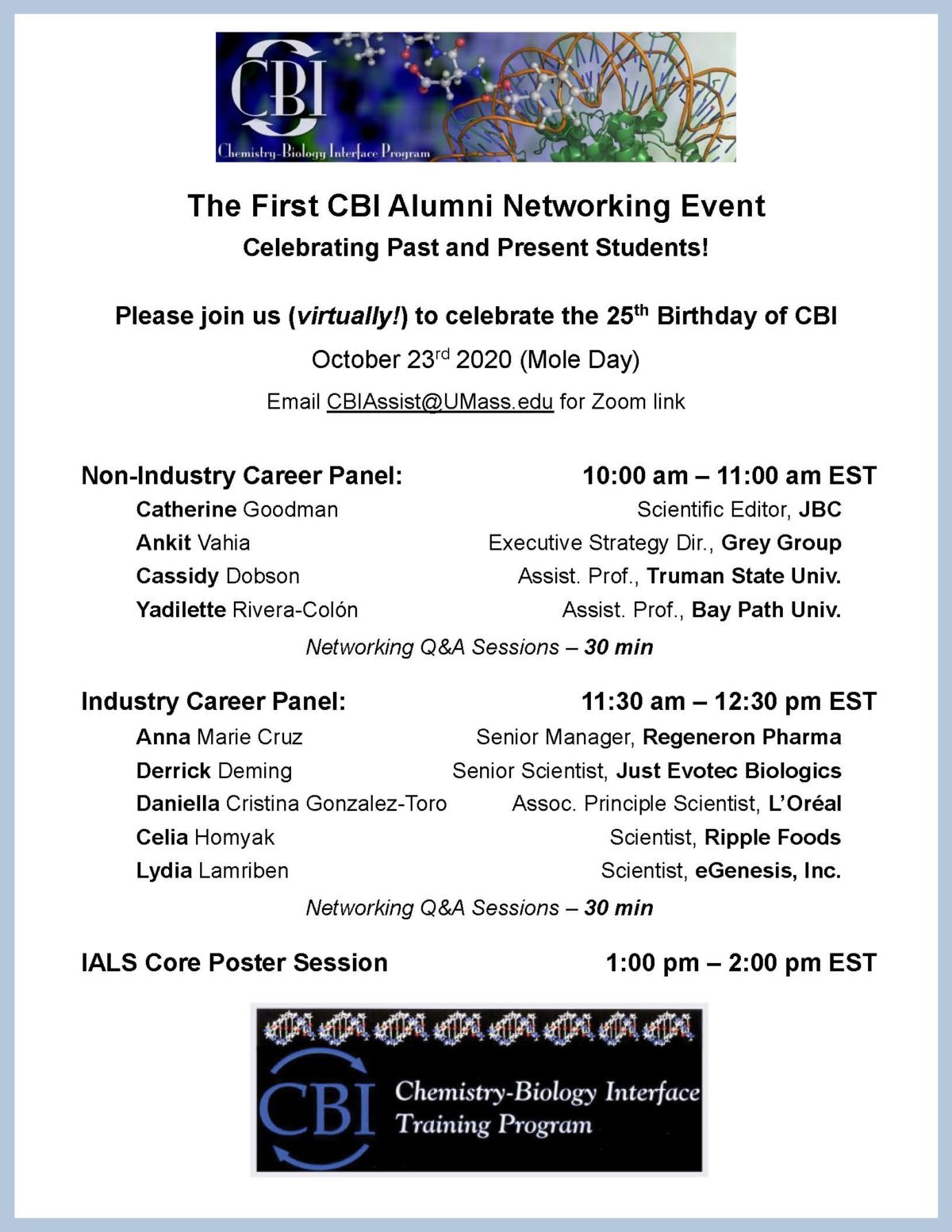
October 23, 2020, 10am-2pm Join us for this online event to celebrate the 25th birthday of the CBI Program! Featuring CBI Alumni leading Career Panel Discussions. Showcasing current CBI student research in the new IALS Core Facilities. Read more
-
Lila Gierasch elected to the National Academy of Sciences!
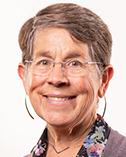
Read the press release and her member profile! Lila’s research focus for decades has been protein folding, that is, how amino acid sequence determines the three-dimensional structure of a protein. She is particularly focused on how proteins fold in the cellular environment and the role of molecular chaperones in ensuring high fidelity in the folding… Read more